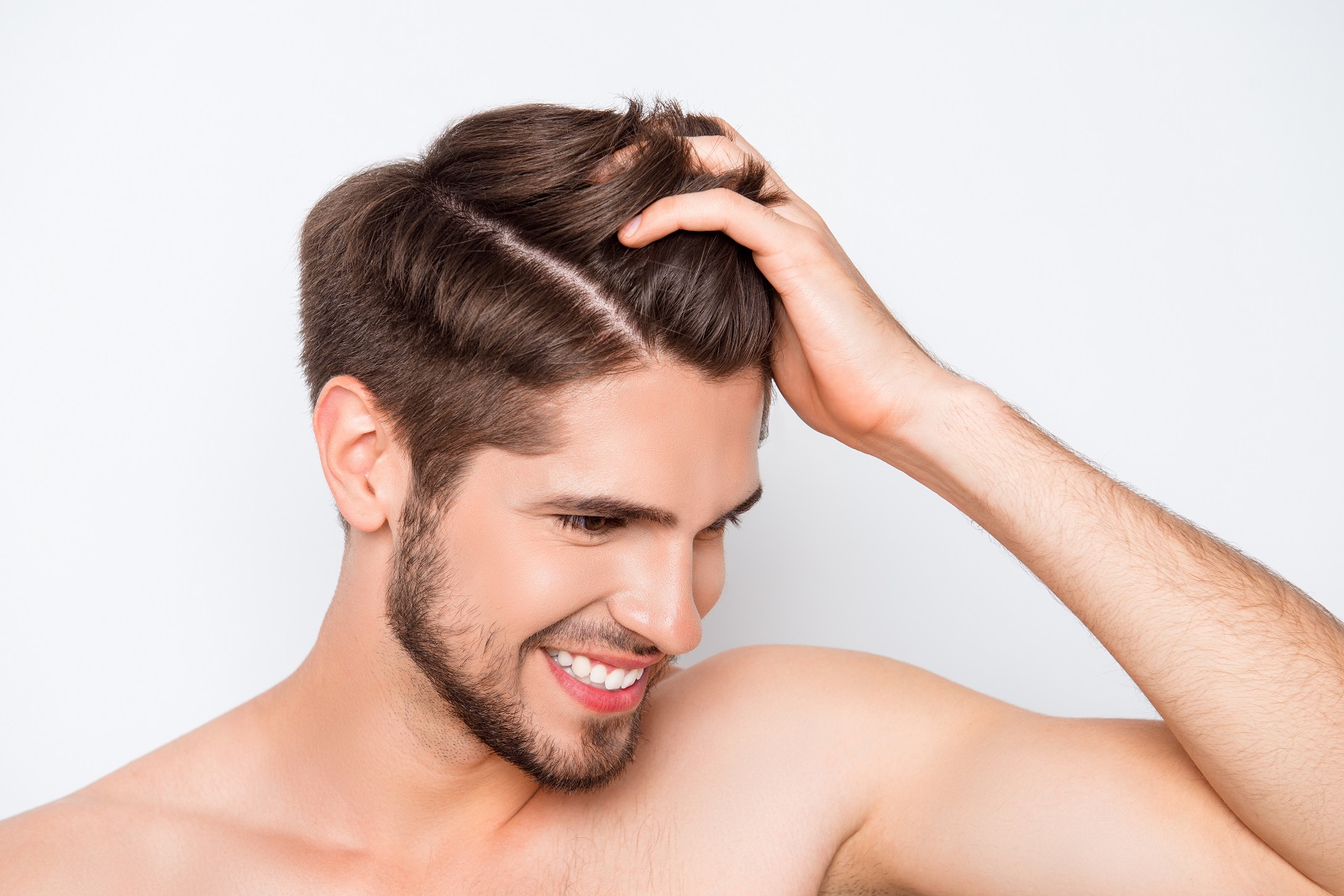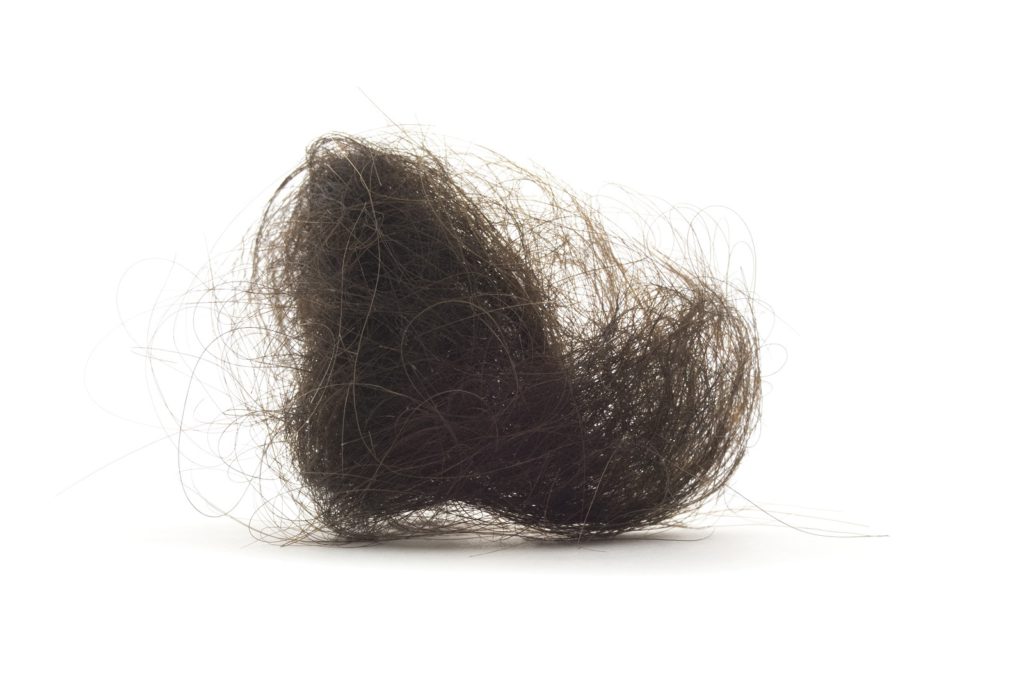Telogen Effluvium
Telogen effluvium, a type of hair loss, occurs when large numbers of follicles on the scalp enter the resting phase of the hair growth cycle, called telogen, but the next growth phase doesn’t begin. This causes hair to fall out all over the scalp without new hair growth.
Telogen effluvium does not generally lead to complete baldness, although you may lose 300 to 500 hairs per day, and hair may appear thin, especially at the crown and temples.
A medical event or condition, such as a thyroid imbalance, childbirth, surgery, or a fever, typically triggers this type of hair loss. Telogen effluvium may also occur as a result of a vitamin or mineral deficiency—iron deficiency is a common cause of hair loss in women—or the use of certain medications, such as isotretinoin, prescribed for acne, or warfarin, a blood thinner. Starting or stopping oral contraceptives (birth control pills) may also cause this type of hair loss.
Telogen effluvium usually begins three months after a medical event. If the triggering event is temporary—for example, if you recover from an illness or stop taking the medication causing the hair loss—your hair may grow back after six months. Telogen effluvium is considered chronic if hair loss lasts longer than six months.
Alopecia Areata
Alopecia areata is an autoimmune condition, which means the body’s immune system attacks healthy tissues, including the hair follicles. This causes hair to fall out and prevents new hair from growing.
This condition can affect adults and children, and hair loss can begin suddenly and without warning. Hair from the scalp typically falls out in small patches and is not painful. Hair in other parts of the body, including the eyebrows and eyelashes, may also fall out. Over time, this disease may lead to alopecia totalis, or complete hair loss.
Our Doctors Q & A
What steps can be taken to mitigate the hair loss, such as supplements or diet?
I would recommend the following supplements that have proven to be extremely effective in addressing certain skin issues:
Biotin
Biotin encourages the production of protein for hair growth. In addition, it also stimulates new hair growth and promotes healthier texture by protecting against dryness, scalp flaking and increasing elasticity of hair to prevent breakage. I recommend it to my patients who have any concerns with thinning hair or brittle nails.
Marine Fatty Acids
When consumed, marine fatty acids such as omega-3 work to combat dry and damaged hair, hair loss, and a flaky scalp. The DHA and EPA found in omega-3 adds elasticity and shine to dull hair, and promotes hair growth. Marine fatty acids also help to protect and repair skin cells, moisturizing the skin from the inside out.
I will suggest to my patients to have at least one to two capsules daily of a supplement containing Biotin and Marine Fatty Acids.
What steps should be taken if the hair loss does not improve?
Cases where hair loss lasts for longer than 6 months will require further investigation. Consult a doctor to do blood tests to assess hormonal levels and to ascertain if you are suffering from iron deficiency.






